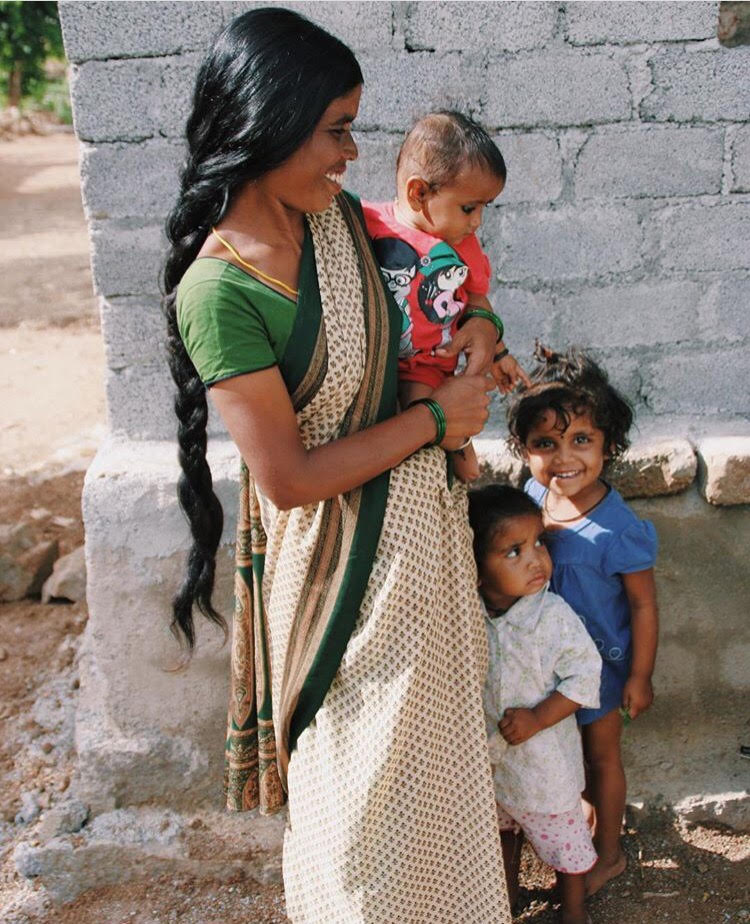Story
Bhavana’s story
Time. It’s the most precious resource I have as a widow. When my husband died, I was denied my family’s share of the agricultural land in our local village, and so, as the sole wage-earner, I made a decision to move to Karmik Nagar. I sell green, leafy vegetables in the market – all kinds: silvery stinging nettles, healing light-green turmeric leaves, curling bright lingru and fibrous Malabar spinach. I pick my greens early every morning from local farms and carry them in heavy bags to the centre of the city. The smell of these plants is fresh and life-giving and I feel proud to be supporting my family with money from natural ingredients, but it takes time.
I have to be at the farms as early as possible so I can have the pick of the best leaves, I have to set up my stall early otherwise my spot in the middle of the market gets taken quickly and I have to stay at my stall until nightfall in order to make enough money to survive, so I need every drop of my time.
It takes me and my children more than an hour to go and come back from the nearest toilet. We have to walk for more than 2km, so at most I can only afford to go there once a day. Sometimes I have to send my children to walk to the quiet and unprotected path to the facilities alone, but what can I do? If it’s a choice between safety and food I have to choose food for them, otherwise they can’t study and improve their lives.
I’m not the only one facing these kinds of difficult and degrading decisions, since we don’t have a toilet in our slum, the women I know not only constantly face the risk of violence as they travel alone to the nearest toilets but they face economic exclusion. If I only have one person who wants to buy my vegetables in one day and I miss them because I have to travel to attend nature’s call then that is one day that my children don’t eat.

